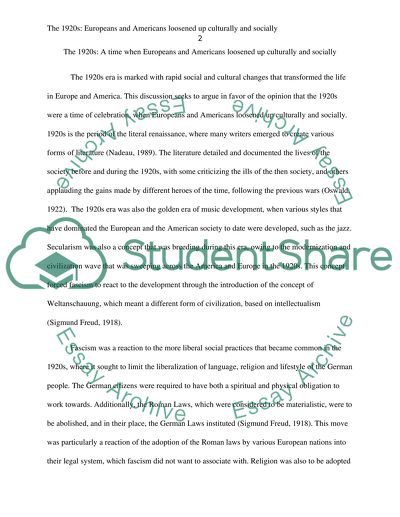Cite this document
(“The 1920s have often been referred to as both a time of celebration, Essay”, n.d.)
Retrieved from https://studentshare.org/literature/1477456-the
Retrieved from https://studentshare.org/literature/1477456-the
(The 1920s Have Often Been Referred to As Both a Time of Celebration, Essay)
https://studentshare.org/literature/1477456-the.
https://studentshare.org/literature/1477456-the.
“The 1920s Have Often Been Referred to As Both a Time of Celebration, Essay”, n.d. https://studentshare.org/literature/1477456-the.


